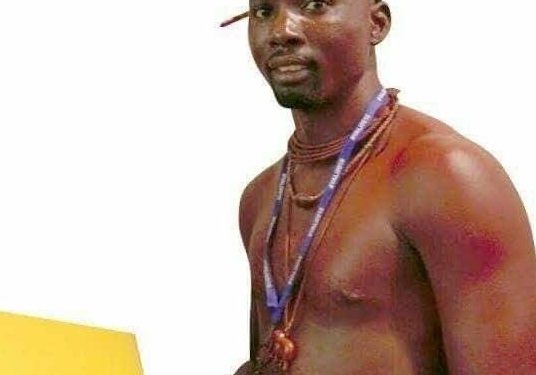Africanian News: Thank you for accessing this interview. Briefly tell us about your journey as an entrepreneur.
Alphons Kahuhu Koruhama : I began my journey of entrepreneurship in 2016, after I was selected as one of the Mandela Washington fellowship. That’s when my life took pivot trajectory into the entrepreneurial world. After I returned from the fellowship, I began with engaging the youth by training them on how to start their own businesses under Possibility Thinkers project. In the same year, I founded Maariu Investment cc and Possibility Thinkers Start-up incubation. I started doing mentorship, leadership and entrepreneurial training to the youth under Possibility Thinkers Entrepreneur and Leadership Program. Last year Maariu Investment cc ventured into agriculture business registered as local fresh produce.
AN: You are the founder and CEO of Possibility thinkers, and Maariu Investment in Namibia, How is the current health crisis Covid-19 impacting your business and what are the contingency protocols activated to correct possible cracks?
AKK: The pandemic has put our training on hold due the restrictions in place and slowed down our production process due to restricted movement under the first lockdown, until we registered as providers of essential services, but it has still posted some challenges, because most of our customers were local restaurants which are affected also by the restriction. During this time, we put on hold our physical training and engaged the public through social media platforms such as TV, Radio, newspapers and other online platforms such as Facebook and twitter. We do online order for our veggies and home delivery.

AN: To what extent do you think that the current Covid-19 crisis may affect the economy, especially entrepreneurs?
AKK: The effect of Covid-19 has hugely affected small business, those women who do streets vendors and start-up, who were in the process of breaking into the market. This slowed down the productions of fresh produce in the rural and urban farms, because most of our small scale farmers depend on seeds supplied from the big retailers. The movement between regions that have been on hold has put most people out of business, especially the transportation industries. We are not immune to the effect of this pandemic, our business has slowed down, but in the midst of this crisis, I am seeing an opportunity for my Agriculture business, where we begin to focus on producing some veggies for seed harvesting , to be able to sustain our production and assist other farmers.

AN: Gender equality and equity versus comfort. Do you have a particular program or support any initiative for women who decide to start in agriculture business, especially in emerging markets?
AKK: In our organization and the company I founded, we believe in the ability to deliver rather than gender, and we encourage individuals to be more innovative and creatives and this comes with our team, each individual works on his/her time at their own comfort. That’s why we work from home ever since we started our business. We believe in Ubuntu, “I AM BECAUSE YOU ARE,” this phenomenon that looks beyond gender, race but takes you as you are. We know we are human before we became other gender or race. We have a program of mentorship that motivate individuals to work on their own dreams and allow them to discuss openly with us what they want to achieve and our companies intervene where they can, to help them to achieved their dreams. We encourage them to study; I travel with them to expose them to other culture and environment.
AN: What are your references? We are also interested in knowing what is your opinion on assisting single mothers in taking a leadership role in the Agricultural sector?
AKK: I believe the future is feminine, Agriculture is feminine and women are feminine being, Women having this in common with mother nature and agriculture made me believe that if you take away women from Agriculture you have broke humanity away from the recycle of ecology and reproduction and you have reduced human survival on the planet. Subsequently, on our business we train and encourage women and call them back to food productions and spearhead the discussion around food security and climate change. Because our mother earth is eagerly waiting for the mothers to come back home and cultivate the soil. Coming from an indigenous community gave me the privilege to witness women driving the village economy by them being in the field. My aims are to integrate the fusion of indigenous knowledge in agriculture using technology and encourage farmers to harvest their own seeds.
AN: Thank you very much.









